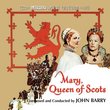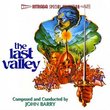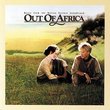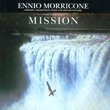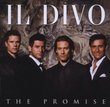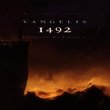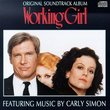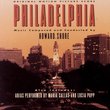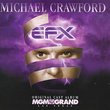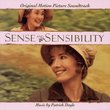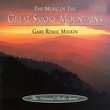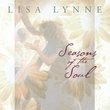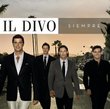| All Artists: John Barry Title: The Lion In Winter (1968 Film) Members Wishing: 0 Total Copies: 0 Label: Sony Original Release Date: 10/30/1968 Re-Release Date: 3/14/1995 Album Type: Soundtrack Genres: Pop, Soundtracks Style: Number of Discs: 1 SwapaCD Credits: 1 UPC: 074646613320 |
Search - John Barry :: The Lion In Winter (1968 Film)
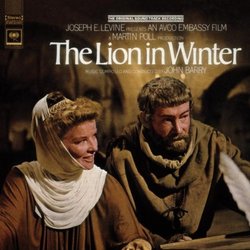 | John Barry The Lion In Winter (1968 Film) Genres: Pop, Soundtracks
Though perhaps best known for the cool, unsettling detachment of his Bond scores and the lush romantic overtones of Out of Africa and Somewhere in Time, composer John Barry has an impressively broad range. In fact, it was ... more » |
Larger Image |
CD DetailsSynopsis
Amazon.com essential recording Though perhaps best known for the cool, unsettling detachment of his Bond scores and the lush romantic overtones of Out of Africa and Somewhere in Time, composer John Barry has an impressively broad range. In fact, it was this rousing brass and choral work for Anthony Harvey's 1968 adaptation of James Goldman's play about the rise of England's King Henry II that garnered Barry his second Academy Award. Moving beyond mere costume-drama pomp, Barry's work here effectively bridges the 12th and 19th centuries, its massed voices echoing the Church of England while maintaining a distinctly modern harmonic sensibility, while the orchestral writing echoes the edginess of his Bond work with surprising effectiveness. --Jerry McCulley Similar CDs
Similarly Requested CDs
|
CD ReviewsBrilliant Music, Ominous, Stirring, and Magnificently Royal Gary F. Taylor | Biloxi, MS USA | 12/22/2009 (5 out of 5 stars) "Film music exists to support the overall the film, and as such it is rarely able to stand alone. Even so, a number of film composers have been consistently able to transcend this circumstance; names like Bernard Herrmann and Max Steiner, to name but two, created works for film that crossed over to both popular music and concert hall. John Barry (b. 1933) is among this elite, making a name for himself in pop music before jolting moviegoers with his arrangements for the James Bond film DR. NO. He would go on to arrange a dozen Bond films, but he quickly moved beyond that franchise to become one of the best known and best regarded composers of film music--and winning an armload of awards, including five Academy Awards, in the process.
Barry's first Academy Award came with THE LION IN WINTER. The James Goldman play had been well liked by critics, but in spite of good reviews and considerable star power (the original stage production featured Rosemary Harris, Robert Preston, and Christopher Walken) played a scant 92 performances. It was not until the 1968 film production with Katherine Hepburn and Peter O'Toole that the acidly funny, highly dramatic tale of King Henry II and the Queen Eleanor made a major impression--and while certainly the potent cast had much to do with the film's success, no one could deny that Barry's score was also a major factor. It was not in the least "singable" in any popular sense, but it possessed grandure, scope, and power that grounded the film to remarkable effect. With the film set in 1183, Barry responded with a mixture of royal-sounding brass and unexpected strings--a combination that would eventually be seen as something of a trademark in his work--and combined them with Latin chants. It was and is a potent mixture, with the Main Title theme a case in point, almost overpowering in strength, strident and martial, darkly incantory in style. You've little doubt that something worth attention is about to happen. It commands attention. "Chinon/Eleanor's Arrival" is equally fine, possessing a gliding, river-like quality that perfectly matches the river scenes over which it plays, and yet still maintaining a sense of power and strength. Had Barry's work for the film been limited to these selections alone the score would still be extremely memorable, but the soundtrack for LION contains a number of additional delights: the delicate "Allons Gai Gai Gai," which is later echoed in "Christmas Wine;" the dramatic "Damn You," which like many other selections refers back to the main theme in style but which does so without being repetitive; other selections strange yet powerful mixtures of the ominous and the hopefull. Truly, there is nothing about which to complain this collection, be it heard within the context of the film or standing alone. Everything about it is remarkable, fresh, unexpected, and exact. Strongly recommended. GFT, Amazon Reviewer" |

 Track Listings (12) - Disc #1
Track Listings (12) - Disc #1